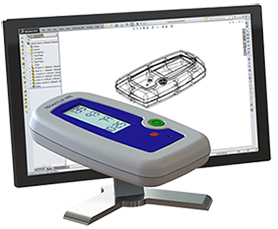Knowledge Center
3D Printing -The New Age of Printing
 Imagine you’re a toy manufacturer. It’s
the beginning of the fiscal quarter, and it’s your turn to come up with a neat idea
to impress the boss. There’s just one problem: it’s due tomorrow! You’ve got a great
concept, but there’s no way you can “mock up” a prototype by tomorrow morning. What
are you going to do?
Imagine you’re a toy manufacturer. It’s
the beginning of the fiscal quarter, and it’s your turn to come up with a neat idea
to impress the boss. There’s just one problem: it’s due tomorrow! You’ve got a great
concept, but there’s no way you can “mock up” a prototype by tomorrow morning. What
are you going to do?
Relax. You’ve got a 3D printer. That’s right. After you sketch your design on to
a normal sheet of paper, scan it, and make a few adjustments in a 3D modeling program,
you hit “print” and your full-color figurine appears inside the printer next to
your desk.
Sound like science fiction? Far from it in fact. 3D printers are “out of this world”
technology, but do exist on this planet. They work on the platform of “additive
manufacturing.” That is, they analyze the dimensions and colors of the object to
be printed, then build an object “from the ground up.” Layer by layer, levels of
plastic, resin, powder, and even metal are sprayed onto a platform, forming a perfect
replica of the object in amazing detail.
There is one downside. 3D printers are still a little expensive. Because of their
relatively high cost, 3D printers have long been relegated to companies that absolutely
need them. Architects, auto manufacturers, and yes, toy makers, have had this technology
for years, but as of late, prices are coming down, making 3D printers affordable
to a wider range of customer.
Projects such as RepRap (www.reprap.org)
are spearheading the evolution of 3D printing. It is their hope, if only for academic
interests, to accelerate the evolution of 3D printing so as to make them more affordable
to the average consumer. By taking on new and interesting ideas within the realm
of additive manufacturing, they have succeeded in drawing attention to their cause.
Lately, RepRap has focused on building a 3D printer that can print its own components.
That is, a printer that is capable of reproducing. The implications of this sort
of technology are incredible. For example, with the appropriate artificial intelligence,
it is absolutely conceivable that such a printer could build a completely independent
robotic automaton without the help of a human.
These kinds of ideas may still be a little far-fetched, but the “basics” of 3D printing
are here, and already in use.